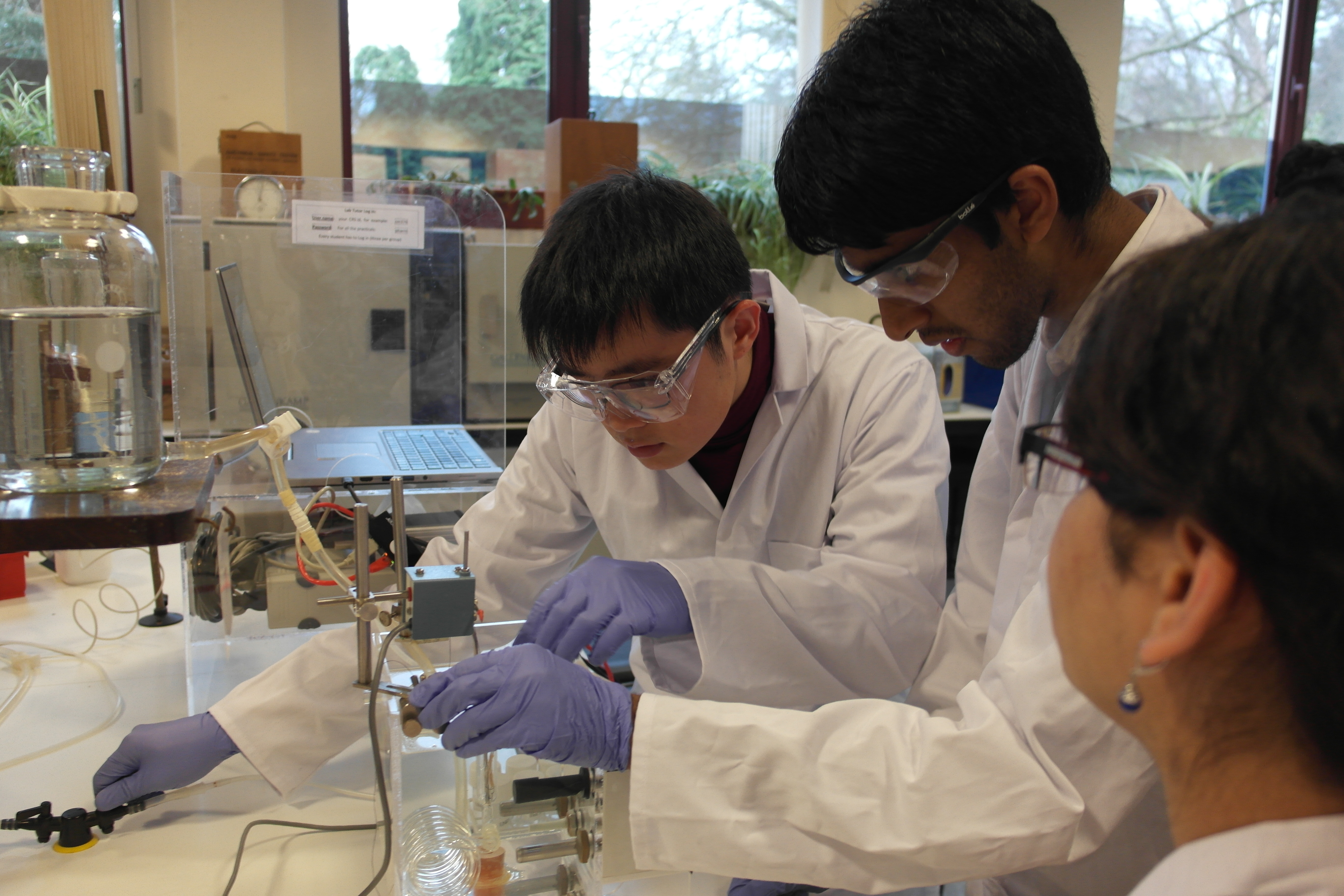Welcome to the NST IB Course Page
This page is a short summary of information regarding the NST IB Course. The key contacts are:
Course OrganiserDr Taufiq Rahman
|
Undergraduate AdministratorAlternative contact: Mrs Christine Roberts |
Course Structure
All teaching is provided in the Department of Pharmacology on Tennis Court Road.
The course follows the familiar pattern: three lectures per week on Mondays, Wednesdays and Fridays at 11:00 a.m. complemented by a sequence of practicals, seminars, demonstrations, and mini-projects.
 The practical course forms an integral part of the teaching. It consists of Seminars, Demonstrations, Practicals and Mini-projects.
The practical course forms an integral part of the teaching. It consists of Seminars, Demonstrations, Practicals and Mini-projects.
Practicals are intended to teach basic pharmacology in a less formal manner than required in lectures, and they provide an introduction to the experimental basis of the subject.
In the Michaelmas Term, a series of six practicals complement the lectures by providing practical experience of both traditional pharmacological techniques, still very much in use in drug discovery, and some of the most advanced techniques now available.
In the Lent Term, five of the conventional practicals are replaced by a mini-project spanning five sessions. In these you have the opportunity to develop sufficient expertise to be able to accumulate useful data.
While you are given explicit instructions to get you started, it is up to you to develop and refine the procedures to obtain the best data possible.
The mini projects form an important part of the examination paper as described later in the section on the exam, students are required to submit their notebook and a scientific poster to the senior examiner around early March. Advice on the preparation of the poster is given in the Lent Term.
The Easter Term will complement the course with two more standard practical classes.
Interspersed with the Practical Classes are Seminars, which are held at 2 pm. A number of the seminars are used for revision of background material studied in Part IA and so are especially useful for students who have not studied Physiology in the first year.
Course Aims
The NST1B Pharmacology course will enable you to understand drug actions on biological systems. The course covers the pharmacological principles required to understand the use of current drugs in research and therapeutic contexts, and the principles required for successful drug development.
Teaching Objectives
At the end of the course students should be able to:
- Explain, using the principles of drug-receptor interactions, how small-molecule drugs influence cell signalling pathways by acting on different classes of receptors.
- Apply the principles that govern the absorption, distribution and elimination of drugs to predict the time course of drug concentrations in the body and consider the implications of these principles for the therapeutic use of drugs in different populations.
- Understand varied approaches to drug development.
- Demonstrate an understanding of the mechanism of drug classes used to restore, or manipulate, physiological functions in the cardiovascular, renal, respiratory, digestive, reproductive, peripheral nervous and central nervous systems.
- Demonstrate an understanding of the mechanisms of drug classes used to control inflammation and immune responses or to kill bacteria, viruses, parasites or malignant cells.
- Experimentally interrogate drug action to describe and quantify drug-receptor interactions to explain effects on cells and tissues.
Lecure Topics
Lecture topics change yearly. Below is an example lecture set from a previous year (2020-2021):
- Introduction. Structure and Function of Receptors. (7 lectures)
- Synaptic Pharmacology (5 lectures)
- Antimicrobial, Antiviral & Anticancer Drugs (10 lectures)
- Pharmacokinetics, Drug Metabolism and General Anaesthetics (5 lectures)
- Central Nervous System (6 lectures)
- Endocrinology and Diabetes (3 lectures)
- Cardiovascular and Renal Pharmacology (10 lectures)
- Inflammation, Pain & Immunopharmacology (8 lectures)
- Drug Discovery (2 lectures)
Examination
Candidates are reminded that the entire course is examinable. We refer to the NST IB Handbook for details. Useful information can also be obtained from Moodle.
Plagiarism
In general, plagiarism can be defined as: the unacknowledged use of the work of others as if this were your own original work.
In the context of an examination, this amounts to: passing off the work of others as your own to gain unfair advantage.
For further information, places consult the Faculty of Biology’s statement on plagiarism and the University’s statement. Further useful information can be found here.
